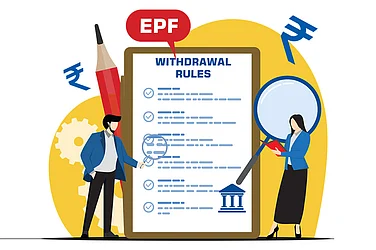Giving in to instant gratification can ruin your budget and investments and can even land you in debt. Combine it with the concept of you only live once (YOLO), and the combination can become potent.
The term, which became popular in the last decade or so, refers to the view that you only live once and, therefore, should make the most of it. For people who believe in the concept of YOLO, splurging and living in the moment often overrides financial planning, and that is where the trouble begins.
Take the case of Harsh Vardhan Vashishtha, 28, from Aligarh, who was working as an engineer at a multinational engineering and technology company, and quit his secure job, not to chase another opportunity, but to walk away from the corporate grind in search of spiritual clarity.
Says Harsh: “I would come home exhausted, mentally and spiritually. The thought of doing this for the rest of my life felt unbearable. You also want to live. Not just exist, earn, and repeat.”
Harsh, didn’t fall on tougher times, financially, immediately. Before quitting, he took stock of his financial situation: an untouched Employees’ Provident Fund (EPF), a current salary account, and a few lakh rupees in his savings account. That gave him breathing space to engage in spiritual practices, go slow on consumption and lean into minimalism. That break worked for his mind, but once he exhausted his savings, he came full circle looking for work. “Financially, I have some exciting things coming up. But even if they don’t work out, I’ve built confidence that I can start again.”
Harsh planned his break from work with a financial back-up and is working on a comeback plan
As compelling as the YOLO mindset is, it’s not without risk. Harsh had, at least, the clarity about why he was taking the leap. His leap was not reckless either; what made it survivable was his financial mindfulness. But a lot of people are not mindful enough.
Planning Plus Clarity
Such decisions demand planning, and not just clarity, which is where professional advice is required.
“The desire for freedom is understandable, but freedom comes at a financial cost. Whether it’s sabbaticals, creative pursuits, or spiritual retreats, they require money and planning,” says Manasvi Garg, chartered financial analyst (CFA) and founder and CEO of Moneyvesta, a wealth management company and a Securities and Exchange Board of India-registered investment advisor (Sebi RIA).
Garg recommends building a “freedom fund” or “purpose savings”—a dedicated pool separate from your emergency funds or retirement corpus for this purpose.
“This fund will give you the breathing room to pause without guilt or risk,” he adds.
According to Garg, three financial pillars must be in place before making a YOLO move: 12 months’ emergency savings, planned expense buffer for the period of no income, and health (and possibly term) insurance.
“Too often people act emotionally without considering the math. A little delay in action, to plan well, can make your YOLO journey less stressful and more sustainable in the long run.”
For those who want occasional indulgence rather than a full-life pivot, Garg suggests building a “fun fund”, much like the savings for short-term goals, such as buying a car, gadget, or saving the downpayment for a home.
“So if you are saving for a 3-month break in the hills or a solo Europe trip, you are allowed to enjoy it. Just don’t make the rest of your life pay the price for it,” he says.
Also, think about your comeback, which Harsh is trying to make now. Remember that YOLO isn’t a forever concept. Whether it’s freelance gigs, upskilling, or a new venture that you plan to take up after your sabbatical, line up at least one path you can pursue for livelihood when you are ready to return.
5 Steps That Will Help Finance YOLO
Build a Freedom Fund: Save a separate corpus exclusively for your YOLO plan, be it travel, a sabbatical, or a passion project.
Budget For A Buffer: On top of your freedom fund, add a 10-15 per cent cushion for unplanned expenses.
Maintain a 12-Month Emergency Fund: Keep your essentials covered (rent, food, bills) in case your income stops.
Get Insurance in Place: Health and term insurance are non-negotiable. Don’t rely on optimism.
Create a Re-entry Plan: YOLO isn’t forever. Whether it’s freelance gigs, upskilling, or a new venture, line up at least one path for sustenance when you’re ready to return.















